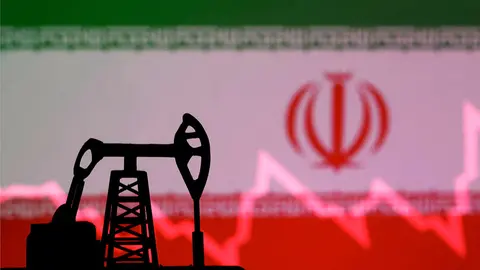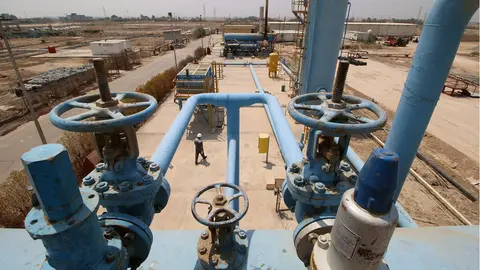Oil and instability: the energy dependence that shapes Iraq
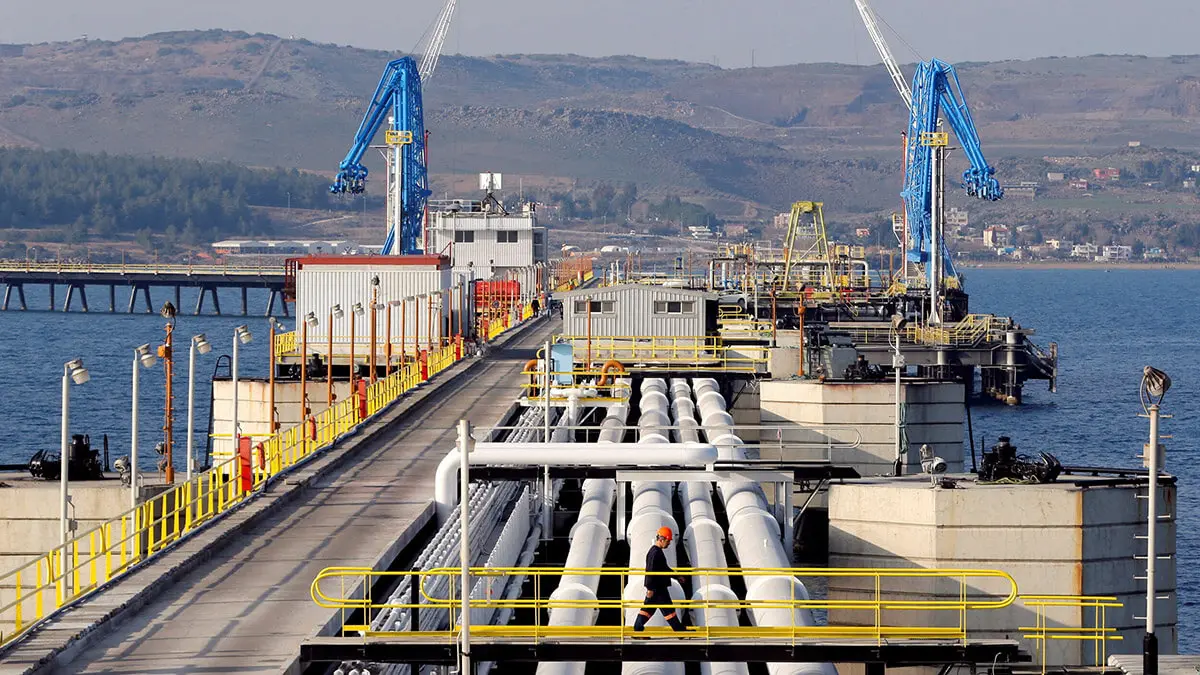
According to various experts, Iraq's development has been stagnant for decades, mainly due to armed conflict, international sanctions, terrorism and, above all, its heavy dependence on oil. The lack of economic diversification has left the country vulnerable to fluctuations in the global market. The Iraqi economy is expected to collapse, driven in particular by falling international demand for crude oil.
Context
IIraq is the second largest oil producer within the Organisation of Petroleum Exporting Countries (OPEC), behind only Saudi Arabia, which is the world's leading exporter of crude oil. In 2024, oil accounted for approximately 88% of the country's government revenue and nearly 92% of its total exports.
Recent discoveries, such as a major field in eastern Baghdad containing more than 2 billion barrels – enough to meet Spain's demand for four years – reinforce Iraq's dependence on the oil sector. According to Mohamed Yassin Hassan, director general of the National Oil Company of Central Iraq, the country plans to increase its production capacity to 7 million barrels per day by 2070.
A history of control and dependence
The role of oil as a tool of power in Iraq is not new. As early as 1904, Ottoman Sultan Abdul Hamid II granted Deutsche Bank an exclusive concession to extract oil in the Mosul region of northern Iraq and build a railway line to the Persian Gulf as part of an attempt to pay off debts accumulated after the Crimean War. Despite the strategic importance of the agreement, oil extraction in Mosul did not begin until 1927 and the railway was not completed until well into the 1940s. The delay was not accidental: Deutsche Bank was already exploiting oil fields in Romania and feared that a global oversupply would reduce oil prices, affecting its profits. This blockade had a negative economic impact on Iraq, which received no productive investment for decades.
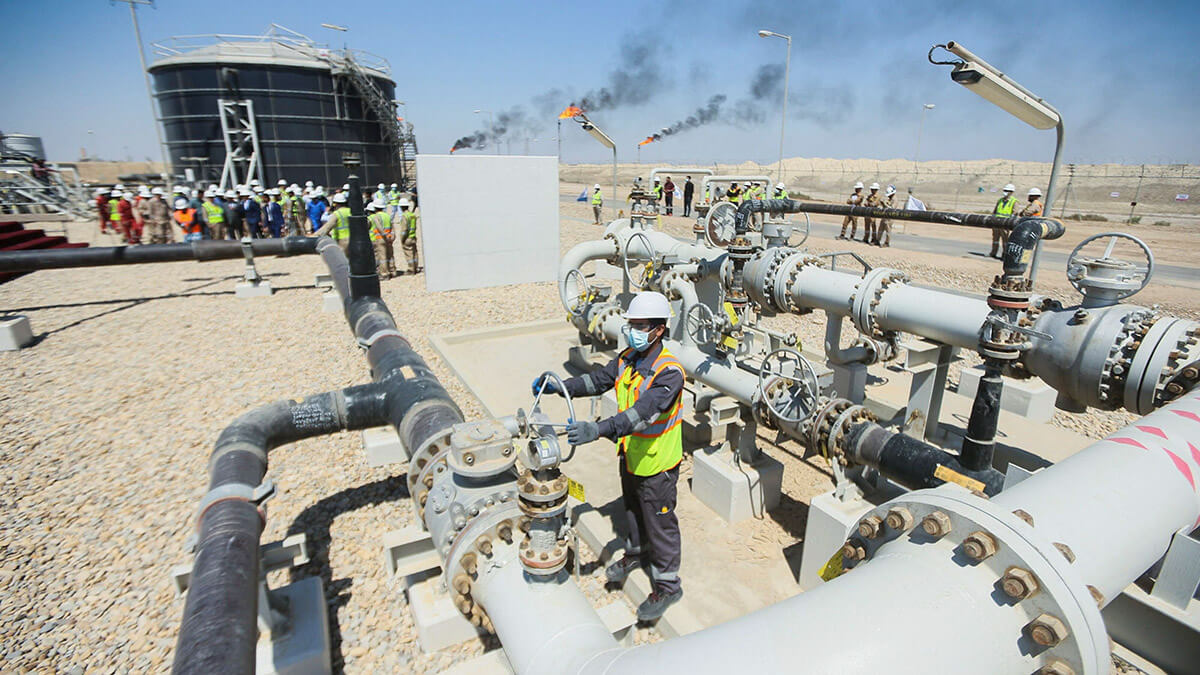
Although geopolitical dynamics have changed since then, Iraq's dependence on oil continues to shape its economic reality in a worrying way. According to the International Monetary Fund (IMF), this situation has not only intensified in recent years, but has become more dangerous given the volatility of the global energy market. ‘These challenges have been exacerbated by the sharp fall in oil prices in 2025, which requires an urgent policy response,’ warned the IMF.
The situation was already deteriorating: the price per barrel needed to balance the public budget rose from 54 dollars in 2020 to around 84 dollars in 2024, exemplifying an economic model that is increasingly rigid in the face of external shocks. In other words, if the price of oil falls, Iraq quickly enters a fiscal crisis because it has no other sources of income to sustain it.
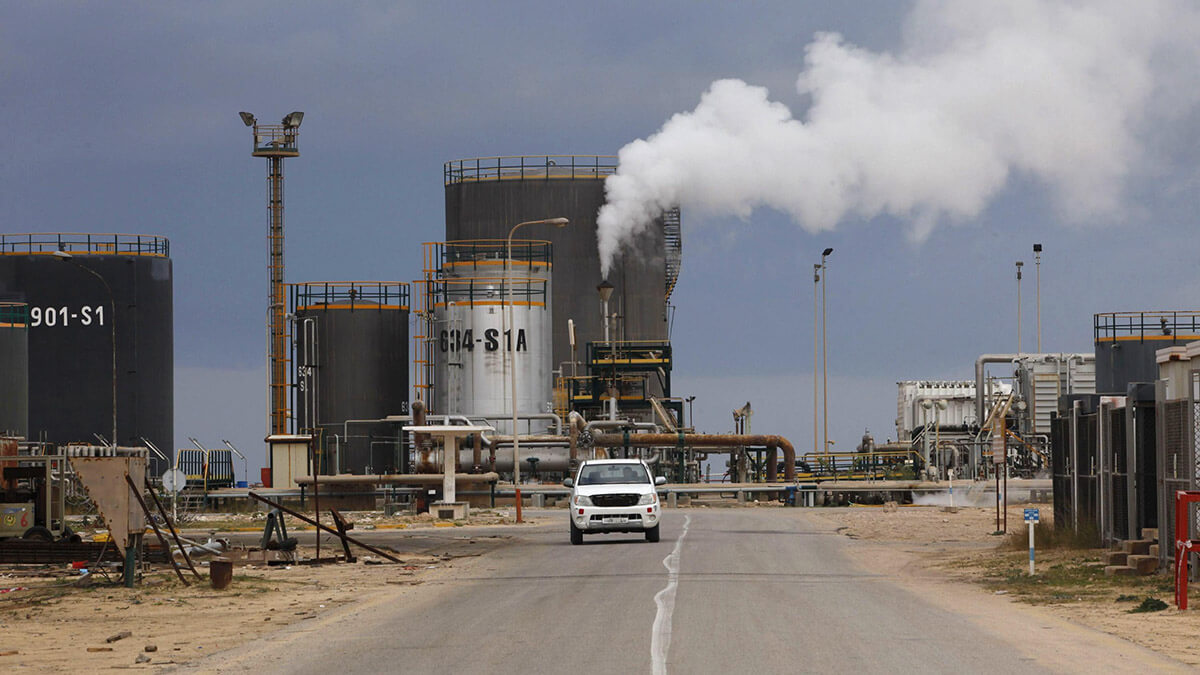
A bleak future
In May this year, the OPEC+ alliance member countries agreed to increase their combined production by 411,000 barrels per day. However, this announcement had an immediate effect on the markets: the price of oil fell by 5%. As a result, Iraq's fiscal deficit now stands at around 50 billion dollars.
Adding to this picture is a slowdown in global economic growth. Trade tensions fuelled by protectionist measures – tariffs imposed under the Donald Trump administration – have caused the international economy to slow down, leading to lower demand for oil. The IMF has, in fact, adjusted its projections downwards, lowering its global growth forecast by half a point to 2.8%.
Some analysts warn that prices could continue to fall if the current situation persists. Others, however, envisage scenarios in which geopolitical tensions with producing countries such as Iran or Russia, or a rebound in demand from China, could push prices higher.
Amid this volatility, Iraq is particularly exposed. In October 2024, the IMF projected that the Iraqi economy would grow by 4.1% in 2025. However, just six months later, in its April report, that forecast was significantly cut.
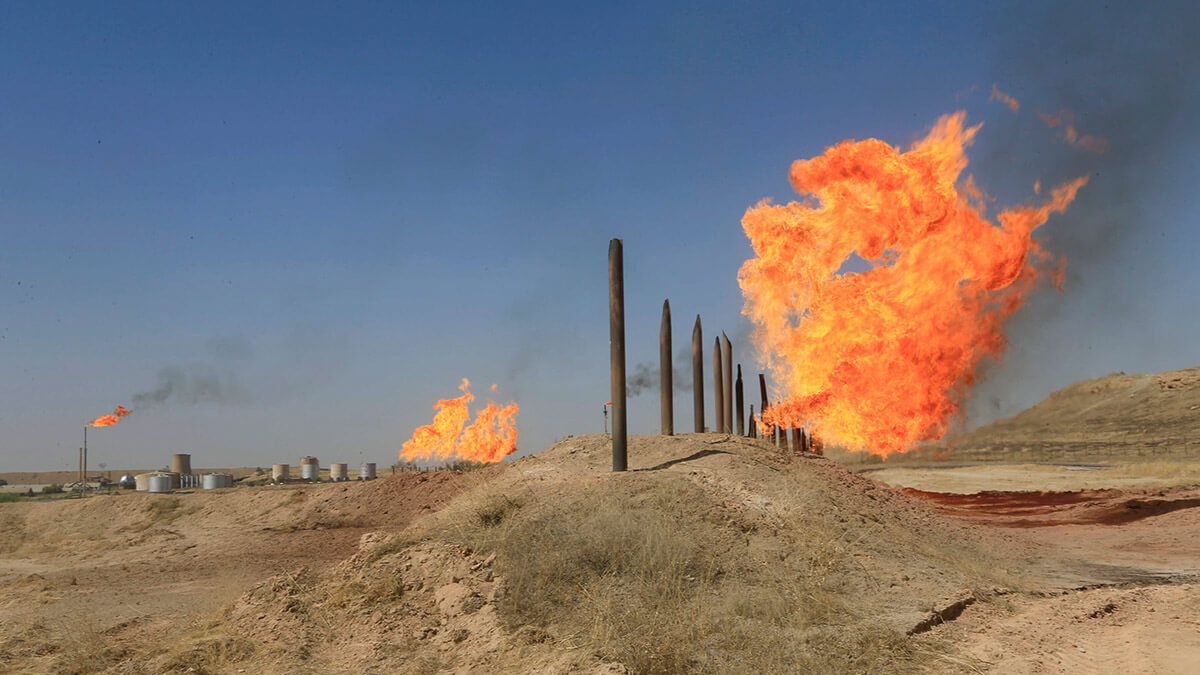
Urgent solutions are needed
In 2014, the sharp drop in oil prices triggered a severe economic crisis in many countries dependent on this highly valuable resource. Faced with this situation, nations such as Saudi Arabia and Oman recognised the urgent need to diversify their economies and reduce their dependence on oil. The Saudi kingdom, for example, launched its ‘Vision 2030’ plan in 2016, an ambitious strategy to develop sectors such as tourism, technology and renewable energy, while Oman undertook similar reforms, such as ‘Vision 2040’, in 2021. Both are yielding favourable results.
Iraqi Prime Minister Mohamed Shia' Al-Sudani announced the launch of the National Development Plan 2024-2028 during a ceremony organised by the Ministry of Planning, with support from international partners such as the UNDP and USAID. This initiative offers sovereign guarantees to the private sector to promote industrial and agricultural projects, as well as advancing banking system reform, service automation and the widespread use of electronic payments. ‘The new plan is aligned with the government's objectives and addresses both internal and external challenges,’ said the prime minister.
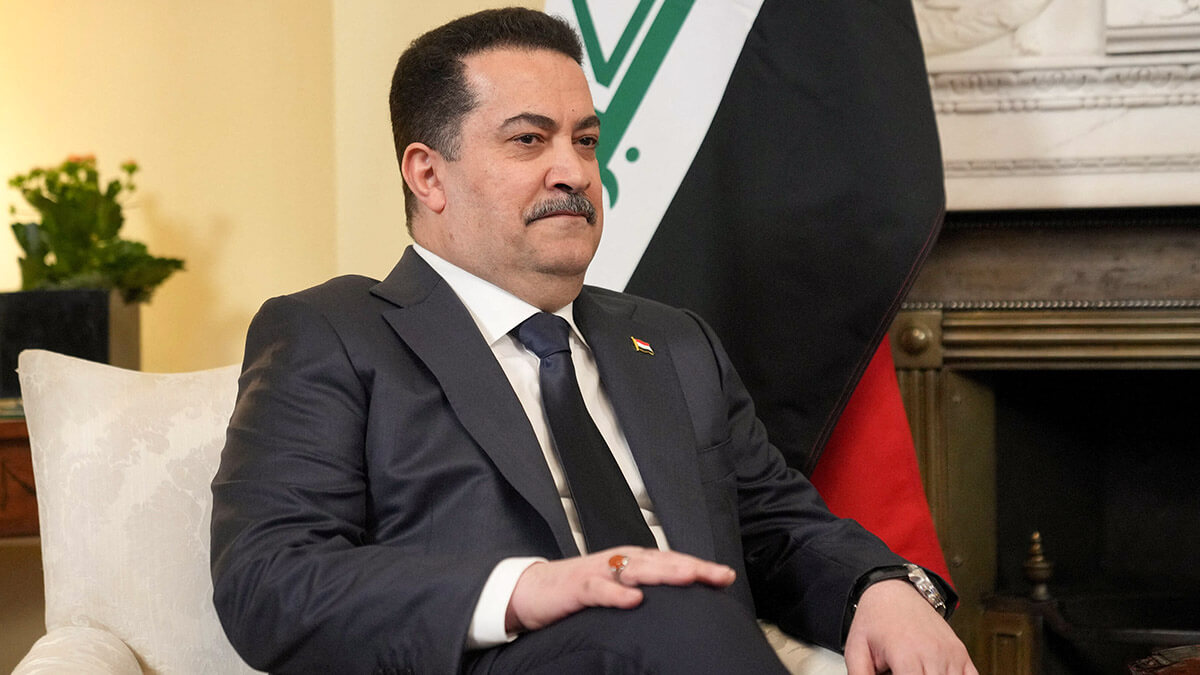
In light of this development, the Iraqi government announced a more optimistic outlook for its non-oil economy. They raised their growth forecast for non-oil sectors (such as agriculture, industry and services) by 0.5 percentage points, meaning they now expect growth of 4% in 2025. However, although this growth is an improvement on previous forecasts, it is actually lower than the growth in 2024, when the non-oil sector grew by 5%.
The lack of progress in non-oil sectors is exacerbated not only by dependence on oil, but also by poor economic management and strong internal tensions. Iraq's national budget is unbalanced: much of spending goes to public sector wages and subsidies, leaving few resources for long-term sustainable development investments. Added to this is a worrying increase in domestic debt, which has grown by 17% and now exceeds 63 billion dollars. Finally, ongoing disputes between the central government and the Kurdistan region over control of oil exports and revenues also hamper the implementation of urgent structural reforms.

